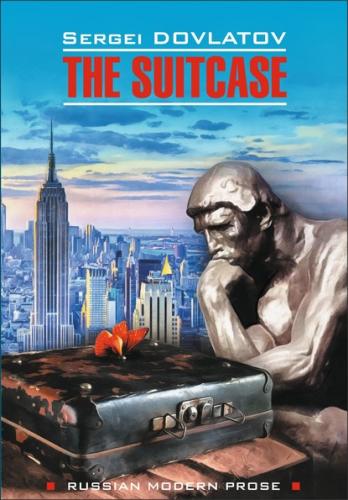Our Lomonosov was taken down after two months. Leningrad scientists wrote a letter to the paper, complaining that our sculpture demeaned a great man. The complaints were directed against Chudnovsky, of course. So we were paid in full.
Likhachev said, “That’s the main thing.”
A Decent Double-Breasted Suit
I’m not dressed too well right now, and I used to dress even worse. In the Soviet Union I dressed so badly that I was rebuked for it. I remember when the director of Pushkin Hills[40] told me, “Comrade Dovlatov, your trousers ruin the festive mood of our area.”
The editors of places where I worked were also frequently unhappy with me. At one newspaper the editor complained, “You’re compromising us, clear and simple. We sent you to the funeral of General Filonenko, and I have been informed that you showed up without a suit.”
“I was wearing a jacket.”
“You wore some old cassock.”
“It’s not a cassock. It’s an imported jacket. And incidentally, it was a present from Léger[41].”
(I really did get the jacket from Fernand Léger. But that story is to come.)
“What’s a layjay?” the editor asked with a grimace.
“Léger is an outstanding French artist. Member of the Communist Party.”
“I doubt it,” said the editor, and then blew up. “Enough! You’re always getting sidetracked[42]! You’re never like anyone else! You must dress in a manner befitting an employee of a serious newspaper!”
So I replied, “Then let the newspaper buy me a jacket. Or better yet, a suit. Naturally, I’ll take care of the tie myself…”
But the editor was not being straight with me. He didn’t care in the least how I dressed. That wasn’t the point. There was a simpler explanation: I was the biggest one at the office. The tallest. That is, as the bosses assured me, the most presentable. Or, in the words of Executive Secretary Minz, “the most representative”.
If a celebrity died, the newspaper delegated me to represent them. After all, coffins are heavy. And I approached these assignments with enthusiasm. Not because I liked funerals so much, but because I hated newspaper work.
“You’re pushing it,” the editor said.
“Not at all,” I said, “it’s a legitimate request. Railroad workers, for instance, get uniforms. Watchmen get warm jackets. Divers get diving suits. Let the newspaper buy me my special clothes. A suit for funerals.”
Our editor was a kind man. With his big salary, he could afford to be. And the times were comparatively liberal then.
He said, “Let’s compromise. You give me three socially significant articles by the New Year, three articles with broad socio-political resonance, and your bonus will be a modest suit.”
Конец ознакомительного фрагмента.
Текст предоставлен ООО «ЛитРес».
Прочитайте эту книгу целиком, купив полную легальную версию на ЛитРес.
Безопасно оплатить книгу можно банковской картой Visa, MasterCard, Maestro, со счета мобильного телефона, с платежного терминала, в салоне МТС или Связной, через PayPal, WebMoney, Яндекс.Деньги, QIWI Кошелек, бонусными картами или другим удобным Вам способом.
